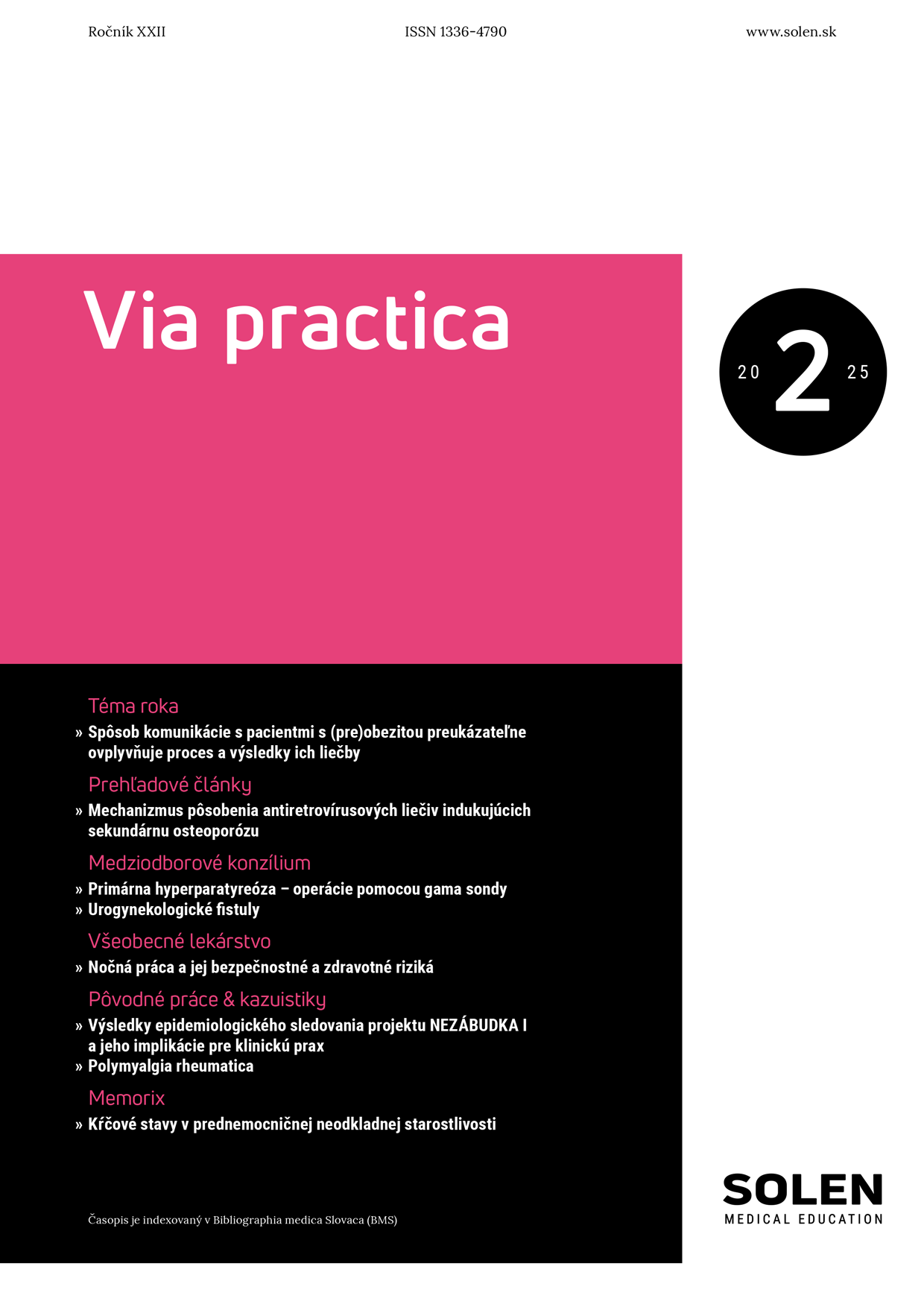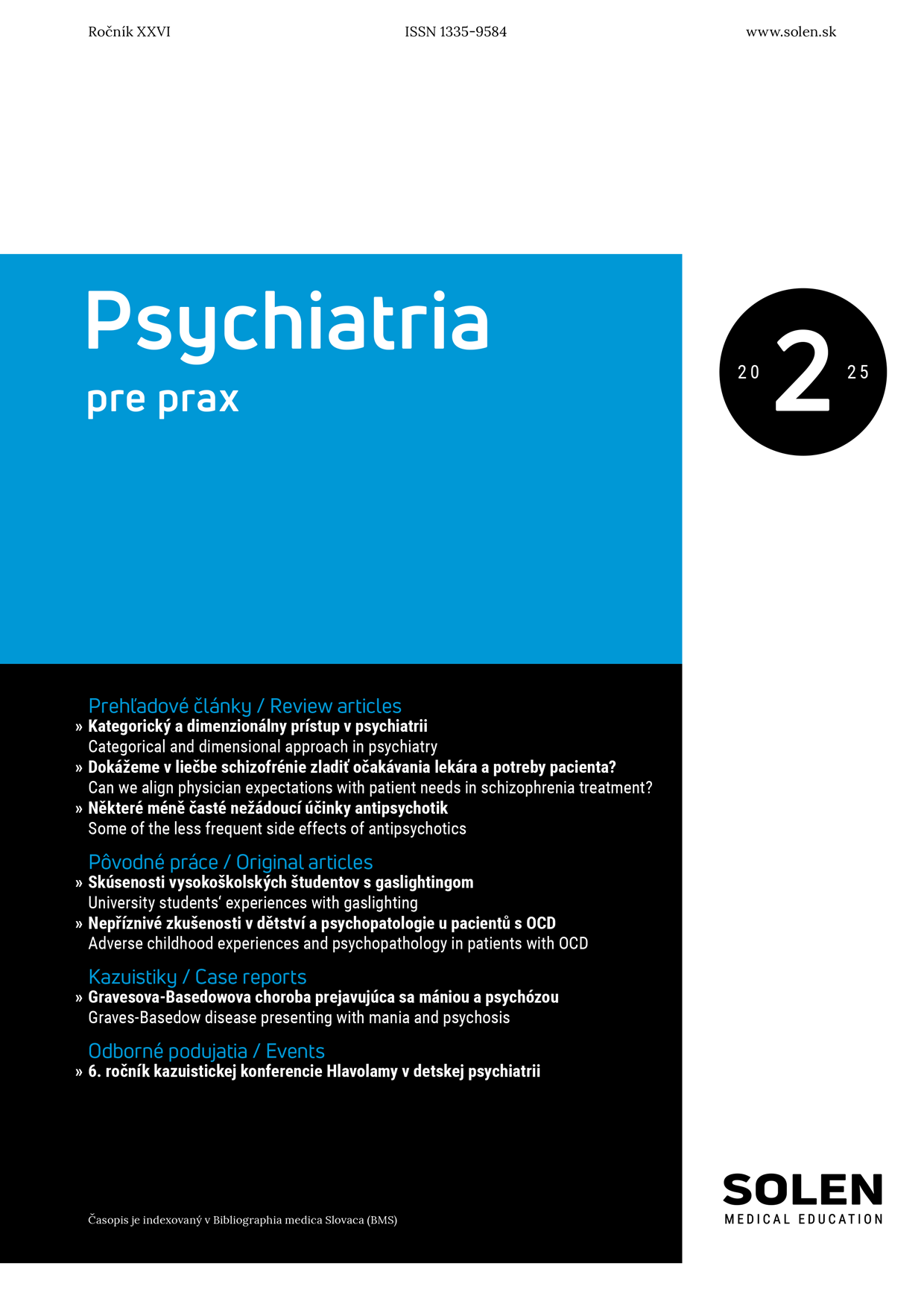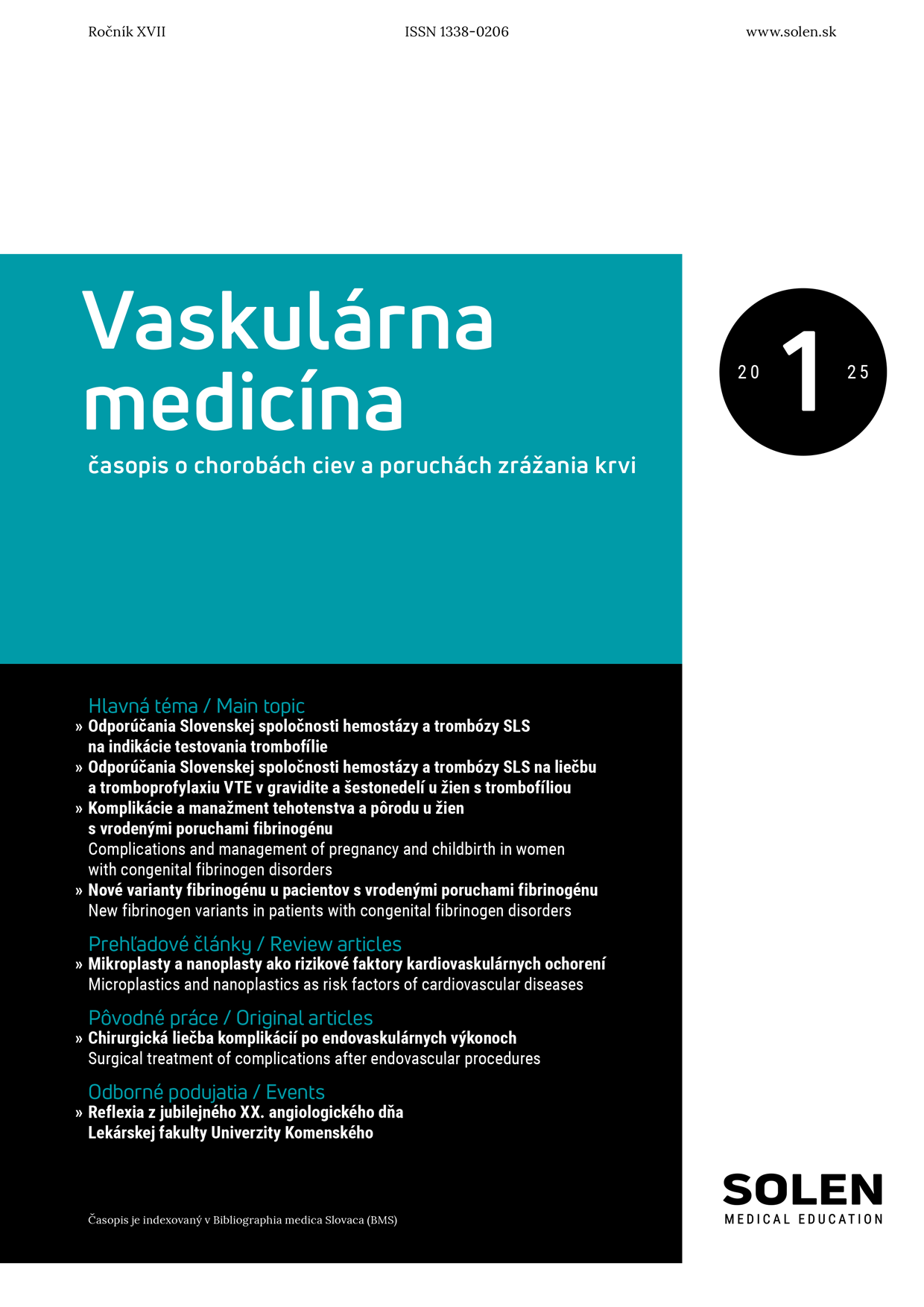Via practica 2/2017
Klinický význam testosterónu u starnúceho muža z pohľadu urológa
Doc. MUDr. Jozef Marenčák, PhD.
Androgénna nedostatočnosť u starších mužov (TDS – testosterone deficiency syndrome alebo LOH – late onset hypogonadism) je skutočná klinická entita. TDS nie je len „nepohodlná situácia“, ale je to potenciálne vážny stav spojený s kardiovaskulárnymi chorobami, diabetes mellitus, metabolickým syndrómom a podobne. Preto je potrebné vyšetriť sérový testosterón nielen u mužov s príznakmi TDS, ale aj u tých s abdominálnou obezitou, diabetes mellitus, metabolickým syndrómom, nízkou fyzickou aktivitou atď. Testosterón by mal byť skontrolovaný u všetkých mužov s erektilnou dysfunkciou, ako aj u tých s normálnou erektilnou funkciou, ale s nízkym libidom. TDS sa lieči substitučnou terapiou testosterónom (TRT – testosterone replacement therapy), ktorá je indikovaná u mužov s príznakmi hypogonadizmu, ktorý je biochemicky potvrdený. Liečebné prípravky testosterónu sú bezpečné a účinné. Kontraindikácie TRT sú dobre definované. Karcinóm prostaty a karcinóm prsníka sú absolútnymi kontraindikáciami TRT. Testosterón samotný nemôže byť dostatočne „genotoxický“ na to, aby vyvolal karcinogenézu de novo. Ošetrujúci lekár by mal mať dostatočné vedomosti o výhodách či nevýhodách každého preparátu a pacient by mal mať možnosť aktívne spolupracovať pri výbere spôsobu terapie.
Kľúčové slová: TDS (LOH) u starších mužov, diagnostika, liečba, sledovanie pacientov
Clinical importance of testosterone in the aging male from urological viewpoint
Androgen deficiency in older men (TDS – testosterone deficiency syndrome, or LOH – late onset hypogonadism) is a real clinical entity. TDS is not only the „uncomfortable health situation“, but it is a potentially serious condition associated with cardiovascular disease, diabetes, metabolic syndrome and etc. It is therefore necessary to investigate not only the serum level of testosterone in men with TDS symptoms, but also in those with abdominal obesity, diabetes mellitus, metabolic syndrome, low physical activity, and etc. Testosterone should be checked in all men with erectile dysfunction, and in those with normal erectile function, but with a low sexual desire. TDS is treated with testosterone replacement therapy (TRT), which is indicated in men with symptoms of hypogonadism, which is biochemically confirmed. Currently available formulations of testosterone are safe and effective. TRT contraindications are well defined. Prostate cancer and breast cancer are absolute contraindications of TRT. Testosterone itself has not be sufficiently „genotoxic“ to induced carcinogenesis de novo. The treating physician should have sufficient knowledge about the advantages and disadvantages of each testosterone products and the patient should have opportunity to actively cooperate in the choice of therapy.
Keywords: TDS (LOH) in older men, diagnosis, therapy, monitoring of patients





-1.png)











